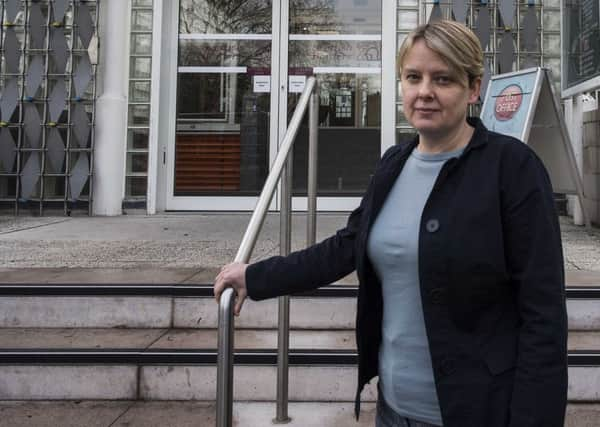Borders council leader rules out workplace car park tax


That pledge follows the announcement that the Scottish Government’s next budget, if passed, will include provision for local authorities to charge employers an annual tax for every workplace parking space they provide.
Employers would then either foot the bill themselves or pass the cost onto their staff.
Advertisement
Hide AdAdvertisement
Hide AdHowever, Tweeddale East councillor Mrs Haslam says the authority won’t be taking up that taxation offer, saying: “It is quickly becoming clear that this is a budget for the cities and not for rural communities.
“The Scottish National Party and Greens are seriously out of touch when it comes to living in rural Scotland if they ever think this could work here.
“I used Google Maps to find out how long it would take me to get to work for 9am using public transport – over seven hours with an overnight stop in Galashiels.
“It really is quite nonsense to think that we can introduce a car park tax when so little investment is forthcoming from the Scottish Government for public transport.
Advertisement
Hide AdAdvertisement
Hide Ad“We will not be introducing such a regressive tax in the Borders.
“The public have enough to deal with with increased income tax and SNP calls to increase council tax.
“I am all in favour of councils having tax-raising powers, but we have to have the freedom to find a system that works in our own areas, not these crazy schemes coming out of Glasgow and Edinburgh that only suit Glasgow and Edinburgh.”
The new funding settlement for local authorities was agreed in Holyrood following a last-minute deal between the majority SNP and minority Greens ahead of the first vote on the annual budget.
Advertisement
Hide AdAdvertisement
Hide AdThe deal includes more core funding for councils and extra powers for them to levy parking and tourist taxes.
Derek Mackay, Holyrood’s finance secretary, first unveiled proposals for his budget in December, including added funding for schools and the National Health Service, as well as increasing income tax for those earning £50,000-plus.
Opposition parties moved to block it, partly due to the SNP refusing to rule out calling another independence referendum and also because they say the budget would result in a £319m funding cut for local authorities. However, the deal with the Greens means the budget is likely to be passed.
The new deal includes an extra £90m for the core local government settlement, a move to three-year local authority budgets and legislation giving councils control over tourism taxes.
Advertisement
Hide AdAdvertisement
Hide AdIt also includes raising the council tax cap, meaning local authorities will now be able to increase that source of income by 4.79%, up from 3%.
Speaking in the Scottish Parliament on Wednesday, February 6, Mr Mackay said councils will be able to choose which taxes they implement.
“There is a case for further exemptions, and local authorities should look very closely at local circumstances when they apply the charge,” he said.
“That will be a matter for local authorities. That is the point of local empowerment.
Advertisement
Hide AdAdvertisement
Hide Ad“There are certainly good cases for local authorities to look at exemptions based on local circumstances which should, of course, be taken into account.
“How the charge applies to teachers is a good example. Given that local authorities will make the decisions, surely councils will think about schools.
“We need to address the important point that the charge is not to individuals but, ultimately, to the employer.
“There is a question about which employers will pass it on, but we must not immediately conclude that individual staff members will pay the charge.
Advertisement
Hide AdAdvertisement
Hide Ad“The scheme should be about the employer or the property owner. The decision-makers in local government will take local circumstances into account, and their decisions will be subject to the safeguards we have insisted on.”
The budget has now passed two votes in the Scottish Parliament and will face a final vote on Thursday, February 21.